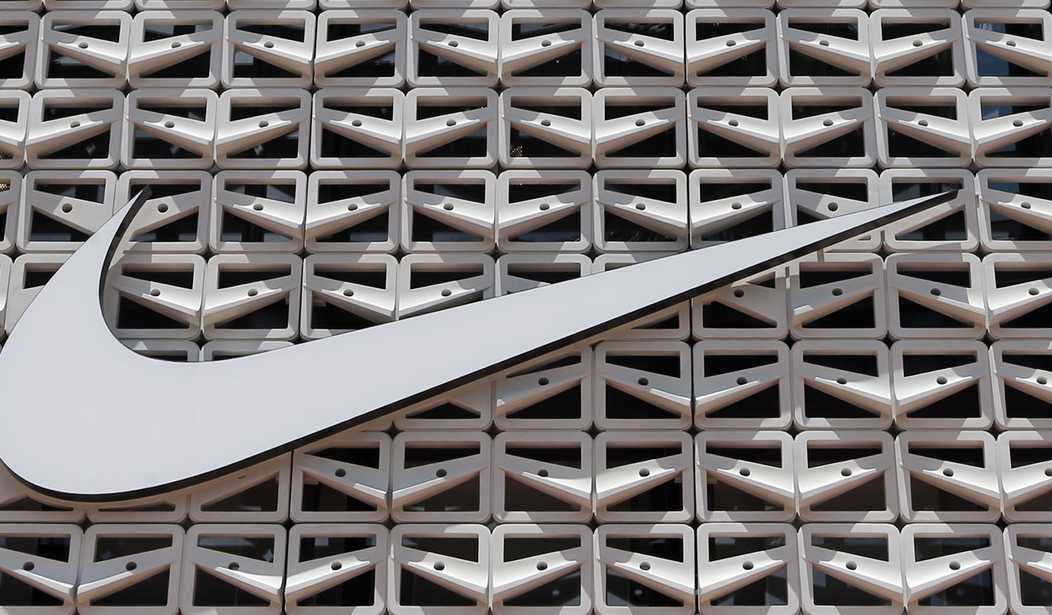Nike has long been accused of turning a blind eye to China’s terrible human rights record, at best, while being super woke in the United States.
The sporting goods giant posted a statement questioning and distancing itself from China’s alleged (by the BBC and Reuters) use of forced labor in concentration camps to pick the cotton used in textiles by Nike and other brands. That statement is being met in China with a much more extreme reaction than Nike probably expected.
Chinese fans are up in arms after Nike said it would not use cotton from China’s disputed Xinjiang region, and some are burning their prized kicks.
The sports company faced a massive backlash and boycott on the Chinese social-media platform Weibo after it released a statement highlighting reports of forced labor of Uyghurs in the Xinjiang Uyghur Autonomous Region.
Nike’s statement merely noted its “concern” over forced labor practices in Xinjiang.
“We are concerned about reports of forced labor in, and connected to, the Xinjiang Uyghur Autonomous Region. Nike does not source products from the XUAR and we have confirmed with our contract suppliers that they are not using textiles or spun yarn from the region.”
How “autonomous” a region can be when it’s dotted with forced labor camps will be left for other conversations.
Reactions to Nike’s mild statement within China are not mild at all.
“The statement from Nike is f—ing disgusting. It makes me want to f—ing vomit. Nike has the gall to demand that its collaborators can’t use Xinjiang cotton. F— off out of China,” said one Beijing user with the Weibo ID Langli Chitiao.
People began posting videos of themselves burning Nike Air Jordans and Air Force 1s, with some of these videos being reposted more than 100,000 times.
“I burned all my Nikes. This is a matter of national pride. We will not be humiliated,” a user with the ID Xuanxuan Mingying said.
Popular Chinese actor Wang Yibo terminated his sponsorship deal with Nike after the statement started lighting up social media.
“From this day, our artist, Wang Yibo, will be terminating all collaborations with Nike. Our agency and Yibo strongly object to any words or actions that attempt to smear China,” Wang’s agency, Yuehua Entertainment, said in the statement.
“Our country’s dignity cannot be infringed upon, and we will protect our country’s pride and interests.”
Yibo was being called a “national traitor” until he severed the contract.
Stateside, Nike handed benched (after a miserable run, and to make way for Blaine Gabbert) NFL QB Colin Kaepernick a nearly $50 million contract after he started the trend of kneeling during the playing of the National Anthem, allegedly to protest police brutality in 2016. Kaepernick accepted that contract with Nike despite the already building evidence of China’s horrific human rights abuses, and Nike and other companies’ profiting from those practices.
A Nike ad featuring the former starter (who was benched to make way for Blaine Gabbert) fetched an Emmy. So did the press conference performances of the now disgraced and likely-to-be-impeached New York Gov. Andrew Cuomo.
Back in China, any company that voices disapproval of that country’s systemically racist and abusive practices — the practices are imposed by the Han majority and target the nation’s Uighur minority — can face severe backlash. This is despite however woke the same company may be in the United States; Nike is among the most woke of them all.
Statements from brands including Adidas, Gap, Fila, New Balance, Zara, and Under Armour saying they will not use Xinjiang cotton have been added to a Weibo list of “brands to blacklist” that grows longer by the hour.
Whether the Biden administration wants it or not — going by Hunter Biden’s lucrative deals with Beijing, it does not — a decoupling of U.S. brands from communist China may be underway. The Dow reacted negatively to the Nike backlash, as it may signal more trade difficulties ahead between the planet’s two largest economies and military powers.
One of these powers is, at the moment at least, completely unable or unwilling to control its own border.









Join the conversation as a VIP Member